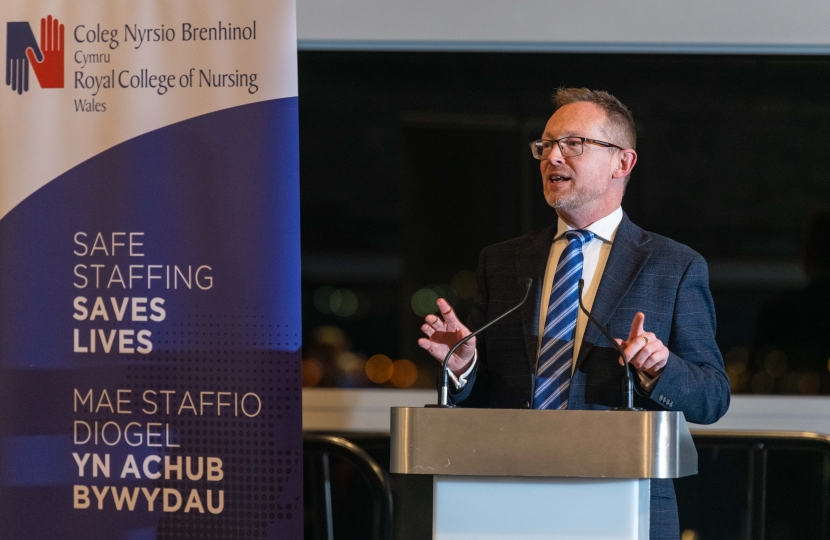
Solving GP problems to end NHS crisis
Sadly in Wales, we currently have the worst ever A&E waiting times, the longest treatment backlog, and slowest ambulance response on record. In a number of recent contribution’s in the Senedd, I have put my own suggestions forward to the Welsh Government in terms of improving access to GPs and reducing the barriers doctors face when doing their work.
I have argued that the enormous strain on the Welsh NHS can be eased by reducing demand on its services by having more people seen by their local GPs and minor injury units. This would mean fewer cases could be seen outside overwhelmed emergency departments.
I have also advocated bringing in rapid diagnostic centres to spot cancers earlier and regional surgical hubs to deliver treatment to patients closer to home in Covid-light environments outside of hospitals, something that is soon to benefit English patients.
Unlike in England, the Welsh health authorities do not collect centralised information that allows the public to see what proportion of GP appointments are held in-person, online, or by telephone.
The areas that I have made in the chamber and to the Welsh health Minister are.
- A plan to improve access to GP appointments, backed by a £30m fund, so patients can see their GP in the way they want, wherever they live, by targeting support towards struggling surgeries to help improve performance;
- Improvements in transparency and accountability by increasing oversight of practices and making health boards collect information on how appointments are held;
- Measures to protect surgery staff from abuse and harassment so they work safely by developing a zero-tolerance campaign on abuse of NHS staff in concert with stakeholders;
- Red tape to be cut so GPs can see more patients by allowing a greater range of professionals to provide medical evidence and certificates such as FIT notes and DVLA checks;
- An exploration of how community pharmacists can play a bigger part in supplying medication and preventing unnecessary attendances, freeing GPs to see more patients;
- Support to upgrade and modernise GP phone systems that so often do not work for most patients, helping them avoid long waits when contacting a surgery; and
- Diversification of where clinical staff can be based by enabling more of them to be stationed in surgeries so patients can see different types of experts in one place to best meet their needs, including pharmacists, advanced nurse practitioners, and nursing associates.
The situation in accessing GPs has not been helped by under-recruitment over many years: compared to 2011, the number of GPs have slightly decreased despite population increases.
Lockdowns resulted in pent-up demand being unleashed once people felt safe to attend healthcare settings following their vaccination. However, this had meant many conditions had exacerbated over several months as they could not see their GP.
Although backlogs in Wales existed before the pandemic – the waiting list doubled in the year before the first lockdown – it has skyrocketed over recent months to the point where a fifth of the population is now awaiting treatment, with 1-in-4 of them having to wait over a year.
Analysis from Breast Cancer Now shows the pandemic caused nearly 60,000 missed screenings, meaning almost 620 women in Wales were living with undiagnosed breast cancer at the end of May.
GPs do skilled work over long hours in difficult, often lonely, settings and deserve to be praised, not demonised. However, we cannot also ignore the fact that the surgery set-up sometimes simply does not work for patients.
I have made solid proposals to reform GP surgeries, diagnose cancer, and reduce the backlog. These, as well as a campaign to encourage use of minor injury units rather than A&E, will be of huge benefit to an NHS that currently harbors low morale.
The UK Government has just announced the highest-ever financial settlement for the devolved administrations in the recent Budget so there is funding available to implement improvement.

